There are many reasons that you may want to increase credit card spend. You may need to meet spend requirements on new credit cards in order to earn big welcome offers. Or, perhaps you want to earn high-level elite status or other big spend bonuses. Or, perhaps you simply want to earn extra rewards using cards with big category bonuses, or big rewards for everyday spend.

The key to increasing credit card spend is to find techniques that either let you use a credit card to pay for expenses that don’t normally allow credit card charges (e.g. mortgage, rent, taxes, contractor payments, …) or to find ways to spend money with your credit card and get the money back as cash.
Opportunities to increase card spend at very low cost and/or effort pop up now and then, but those who find them are likely to only share them in confidence with those they trust for fear of those techniques dying before their time. Even the broad techniques discussed here are very regionally-dependent, something that we’ll be repeating ad nauseum in the rest of this guide.
As a result, making local connections can be very beneficial to learning how to MS where you live. Attending conferences like Frequent Traveler University, the Chicago Seminars, or our FM to Go sessions can help to meet people and learn about applicable MS opportunities before they “die.” Our Frequent Miler Insiders Facebook group offers yet another means to connect and stay up to date with what works and what does not work in various regions and offers a way to stay attuned to the latest when changes develop.

When you do find viable options for increasing spend, it can be very rewarding. A newfound ability to greatly increase spend and earn more rewards can be exciting and it can be tempting to scale up rapidly to meet your rewards goals. But it is important to proceed with caution.
On this page the Frequent Miler team keeps track of what works and what does not, as well as trying to summarize the risks and benefits of various methods. We’ve broken these down into three main categories: direct methods to increase credit card spend, using gift cards and reselling merchandise.
Frequently Asked Questions (FAQ)
Are these techniques legal?
All of the techniques described here are legal, but in some cases the same techniques can be used by criminals to launder money or to convert stolen credit card numbers into cash. This has lead to some businesses trying to stop allowing those techniques to work. One way of looking at it is that criminals indirectly steal our points by killing easy spending options. Sidebar: While the method listed below are all legal, structuring is illegal. Read more here.
Do credit card companies frown on these spending methods?
It depends. Some of the techniques listed below are not condoned by banks. Specifically, the process of using credit cards to purchase and then liquidate gift cards is something some banks don’t like to see. Some might even shut down your accounts if a human sees that this is happening.
The same is true of large money order deposits: some banks will close your accounts for what they deem to be risky activity (i.e. depositing lots of money orders). Shut downs like these can often extend to all of your accounts with that institution (which can include checking/savings, credit cards, retirement accounts, etc) and sometimes even to others in your immediate orbit like authorized users on your accounts.
We at Frequent Miler provide information about these techniques for completeness, but we do not explicitly condone or endorse them.
Do increased spending techniques work all the time?
Details of what works and what doesn’t can change very quickly. Those participating in these techniques need to understand this and be prepared to utilize multiple methods. You just never know when one door will close, as was the case when many Walmart stores and some grocery chains began severely limiting the use of prepaid gift cards for money order purchases. Imagine buying thousands of dollars in gift cards only to find that you have no way to liquidate them.
Another reason that spending options die is that the businesses involved realize that they’re losing money. For example, Citibank used to allow funding new bank accounts up to $100,000 by credit card, for free. In those cases, Citi was absorbing the credit card transaction fees. Suppose they had to pay 1.5% in fees: When a person used a credit card to deposit $100,000, Citi was on the hook for $1,500 in fees. It’s no wonder they stopped allowing this!
Of course, while some techniques inevitably die out, new opportunities also pop up from time to time. Understanding what works or has worked in the past can help identify new opportunities. Many techniques are also highly regional. Making connections with others in your local area can help you identify what works where you live.
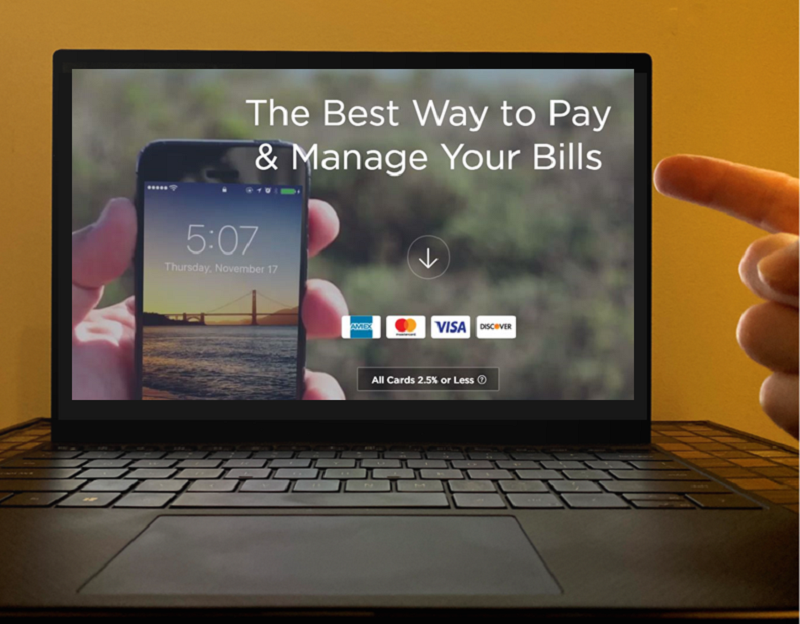
Direct methods to increase credit card spend
This section lists opportunities to use your credit card to pay for things that can’t usually be paid by credit card. This is in contrast to indirect methods which require using your credit card to buy gift cards or merchandise that can then be turned into cash, used to pay bills or sold. Direct spend techniques tend to be easier than using gift card cards, but also tend to be more limited in scope and/or more expensive.
Fund bank accounts with a credit card
- Read this Doctor of Credit post for details showing which banks allow this and how to avoid cash advance fees.
- A great option is to earn a bank account bonus at the same time. See this Doctor of credit post for current bank account bonuses and see this post for examples in action.
Loan money
Loaning money via credit card can be risky, but it can also be a very easy way to increase credit card spend if you know how to reduce your risk exposure. At the time of this writing, there are two major options for loaning money via credit card: Kickfurther and Kiva.
Kickfurther
Kiva
Online Sports Books
Over the last few years, online sportsbooks have gradually spread across the US, creating direct spend opportunities for those in states where it’s legal (or even adjacent to states where it’s legal). Some sportsbooks allow funding via Visa/MC gift cards and the constant stream of promotions meant to engage users can create some potentially interesting hedging opportunities. If this seems easy and straightforward, it isn’t. It requires research, organization and more than a little self-control.
- Cost: Varies from significant profit to your life savings
- Which gift cards work and which gambling outlets accept them varies...and isn't constant.
- Most sites will require that you play through any amount deposited before withdrawing money
- There is a real risk of losing money
- There is also a risk of shut down from the sportsbook itself and, with it, the risk of funds being locked up or potentially forfeited if you can not prove that they are your funds.
- Laws vary by state, so understand what they are in the state you're playing in
Health Assessment: Healthy, but there’s a lot of risk here. It’s important to do plenty of research before diving in.
Pay bills with a credit card
A number of services let you use a credit card to pay bills that can’t usually be paid by credit card. Of course, they charge fees for this service. It’s important to make sure that the rewards earned from your credit card outweigh these fees, otherwise these services aren’t worth bothering with.
Melio
Melio is a service intended to simplify paying business bills. No matter how vendors want to get paid (ACH or check), Melio users can choose how they want to pay (i.e. ACH for free, or credit card 2.9% fee). It can make sense to pay the 2.9% fee if you want to increase spend in order to earn a large welcome bonus or to earn a big-spend bonus (for example, some credit cards offer free hotel nights or elite status with big spend). Unfortunately, you cannot pay personal bills with Melio.
- Standard credit card fee: 2.9%
- Standard debit card fee: 2.9%.
- Bank-to-bank transfer: free
- No subscription fees
- Melio accepts Visa, MasterCard, and Discover. It does accept American Express, but for a more limited set of expenses.
- Melio cannot be used to pay friends and family. It is intended only for paying business bills.
- Prepaid cards are not accepted.
- Credit card payments count as purchases, not as cash advances.
- Melio does not submit tax forms on behalf of customers or payees
Health Assessment: Healthy and easy.
Pay Rent with Bilt
Bilt Rewards is a program that allows you to earn up to 100,000 transferable points per year when paying rent, regardless of whether or not your landlord accepts a credit card. If you have the Bilt Mastercard, you’ll pay your rent through the Bilt app or use the app to generate ACH account information that can then be copied into your online rent payment portal. Bilt will also send your landlord a check, if necessary. The only condition is that you need to make 5 total transactions per month with the Bilt card in order to earn points. There’s no fee for cardholders to use this service.
If you’re not a Bilt cardholder, you can still earn points when you pay rent, but there’s a 3% fee to do so. If you use the Bank of America Alaska Airlines card, you’ll get 3 Alaska miles per dollar, but no Bilt points. If you use any other Visa or Mastercard, you’ll earn one Bilt point in addition to the rewards you’ll get from whichever card you use. If you pay with an Amex, you’ll only earn 0.5 Bilt points/dollar plus your credit card rewards. People who pay rent using a non-Bilt card are able to pay their landlord through the Bilt app or use the app to generate ACH information, but they can’t pay by check.
Health Assessment: Healthy, but limited.
PayPal Bill Pay
PayPayl Bill Pay is effectively PayPal’s version of Plastiq or Melio, but more intentionally oriented towards consumers and usually with no fee. It’s a bill pay service via the PayPal platform that allows you pay utilities, insurance, phone bills and much more directly from your account with all of normal PayPal payment methods. Vendors found in the Paypal Bill Pay system will be paid via ACH bank payment. In some states, PayPal Bill Pay can be used to pay property taxes, without having to pay the normal credit card fee.
- Standard credit card fee: none (on most payments)
- Standard debit card fee: none (on most payments)
- PayPal Bill Pay accepts Visa, MasterCard, American Express and Discover.
- PayPal Bill Pay cannot be used to pay friends and family. It is intended only for paying bills.
- PayPal Bill Pay cannot be used by checking out through a website via the PayPal option. It's through the app or website only.
- Credit card payments count as purchases, not as cash advances.
- There are some reports of Paypal switching the payment method. Make sure to double-check.
- PayPal Bill Pay will use your PayPal balance (if any) first, so it's best to have it at zero before processing a payment.
- It's helpful to start out with a small test charge when first setting up a payee.
- PayPal Bill Pay does not submit tax forms on behalf of customers or payees.
Health Assessment: Healthy, but limited.
Plastiq
Plastiq is an online bill payment service that lets you pay many bills by credit card. The catch? A 2.9% fee and an additional $0.99 – $1.49 fee is charged to the payer (not the payee) for each payment. It can make sense to pay the fee if you want to increase spend in order to earn a large welcome bonus or to earn a big-spend bonus (for example, some credit cards offer free hotel nights or elite status with big spend). Plastiq is not limited to billers in their database and can theoretically be used to pay nearly any business, although in practice they can be very picky about the verifying the legitimacy of business that aren’t in their database.
- Standard credit card fee: 2.9%
- Standard debit card fee: 2.9%.
- Delivery fee per ACH/EFT/electronic payment: $.99
- Delivery fee per check payment: $1.49
- Plastiq accepts Amex, Visa, MasterCard, and Discover.
- Plastiq cannot be used to pay friends and family. It is intended only for paying bills.
- Prepaid cards are accepted, but are officially limited to either $5,000 or $10,000 total per month (depending on the individual account).
- Credit card payments count as purchases, not as cash advances. Plastiq will prevent any payments that could possibly incur cash advance treatment. If Plastiq thinks that there’s a chance of a payment being treated as a cash advance, Plastiq won’t let you finalize that payment.
- Plastiq sometimes requires proof that you are paying a legitimate expense. They may ask you to upload an invoice, for example.
- Plastiq does not submit tax forms on behalf of customers or payees
- Some people have asked if they can have checks that are addressed to others sent to their own house so that they can submit the check with a payment stub or so they can hand the check to the payee directly. Plastiq does not allow this.
Health Assessment: It’s not what it once was, as now charges the same fee for debit and credit cards. Still, it can be a very useful tool in some circumstances.
Pay federal taxes with a credit card
You can use a credit card or gift cards to pay federal taxes. If you don’t mind giving the US government a loan, you can use a credit card or a Visa/MasterCard gift card to pay your year-end and/or quarterly estimated taxes. Over-payments, if any, will be refunded after you file your year-end taxes.
- Standard credit card fee: 1.85-1.98%
- Standard debit card fee: flat fee of $2.20-$2.50.
- Accepts Visa, MasterCard, American Express and Discover.
- The IRS maintains a list of companies that accept credit and debit cards towards tax payments (Found here).
- You can make up to 2 payments per tax period per tax payment processor.
- If filing jointly, you can make up to 2 payments per tax period per tax payment processor per name on the tax return (so doubles total number of possible payments).
- Some tax payment websites support mobile wallet payments such as Samsung Pay or Google Pay, as well as PayPal.
- You don’t need to send in a voucher if you pay by card.
- Card processing fees are tax deductible for business taxes.
- You must contact the card processor to cancel a card payment.
- IRS will refund any overpayment unless you owe a debt on your account. [Editor’s caution: In recent years the IRS has sometimes been very slow to do so]
- Your card statement will list your payment as “United States Treasury Tax Payment” and your fee as “Tax Payment Convenience Fee” or something similar.
- When you pay while filing your taxes through online software, different card fees apply.
Health Assessment: Healthy and easy.
Pay friends
You can use a credit card to pay money owed to friends, for a fee. PayPal and Venmo allow individuals to pay friends via credit card with approximately 3% in fees. The Cash App does as well, but seems to code as a cash advance inconsistently for all issuers, so isn’t a recommended option.
- Venmo Fee: 3%
- PayPal Fee: 3.4% + $.30
- Currently, American Express and Discover are the only issuers that code Venmo as a purchase. All other banks treat it as a cash advance.
- Venmo transactions via Amex do not earn rewards.
- Venmo users can have up to 4 active or deleted cards in their account at any given time over a 6 month rolling period. The 4 card rolling limit means that once you add a card to Venmo, it will count against your card limit for 6 months, even if you delete it.
- PayPal person-to-person payments code as a purchase for most issuers most of the time, but there are reports of them occasionally triggering cash advance fees.
- PayPal is known to freeze and shut down accounts for doing high volume or multiple person-to-person payments in a short amount of time.
Health Assessment: Easy for very low volume. Given the fees, risk of cash advance coding and payment limitations, there’s more attractive options.
See also: Some peer-to-peer payments coding as cash advances.
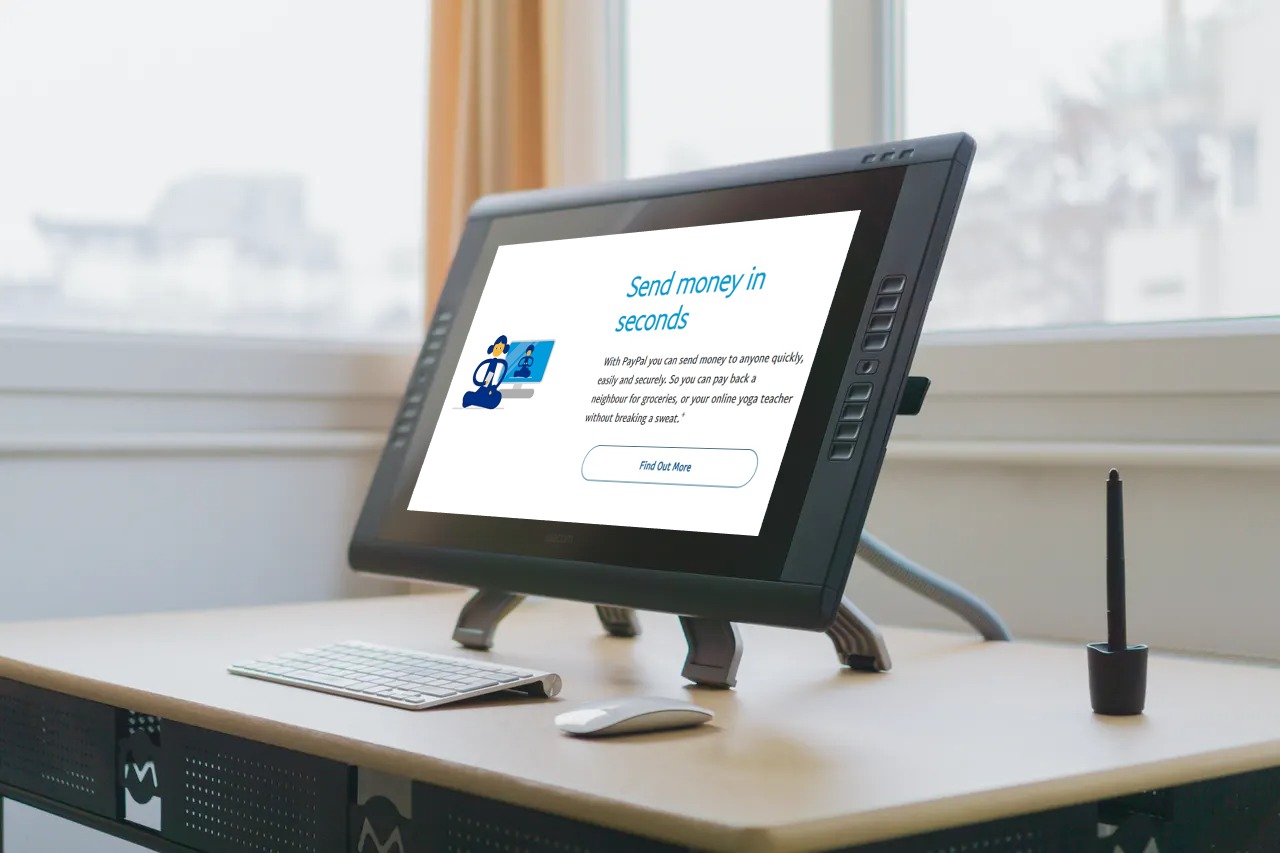
Save for college or pay student loans
It’s possible to use a credit card to buy Gift of College gift cards. These gift cards can then be used to fund student loans or college savings. Each gift card can be bought with a credit card and each has a $5.95 fee. When loading each card to the maximum amount ($500), the fee is a very reasonable 1.19%. There is no fee to apply the value of the gift card to a student loan or 529 college savings plan. Rewards can be significant given that some stores that carry Gift of College Gift Cards may trigger credit card bonus categories valued well beyond the fee. More details can be found here: Miles for College.
- Cost: $5.95 per $500 (1.19%)
- Gift of College gift cards are available regionally at H-E-B and at Cumberland Farms as well as select other chains.
Health Assessment: Healthy, but it can be difficult to find source for Gift of College gift cards in some areas.
Using gift cards to increase credit card spend
Visa and Mastercard gift cards can be useful tools to maximize rewards on credit card spend. These cards are sold both in fixed denominations and in variable-load forms where you can put anywhere between $20-$500 on the card. They are accepted almost everywhere that you can use credit or debit. Outside of periodic sales (like we frequently see at Office Depot and Staples), there is almost always an activation fee on these cards, usually from $3.95-$7.95.
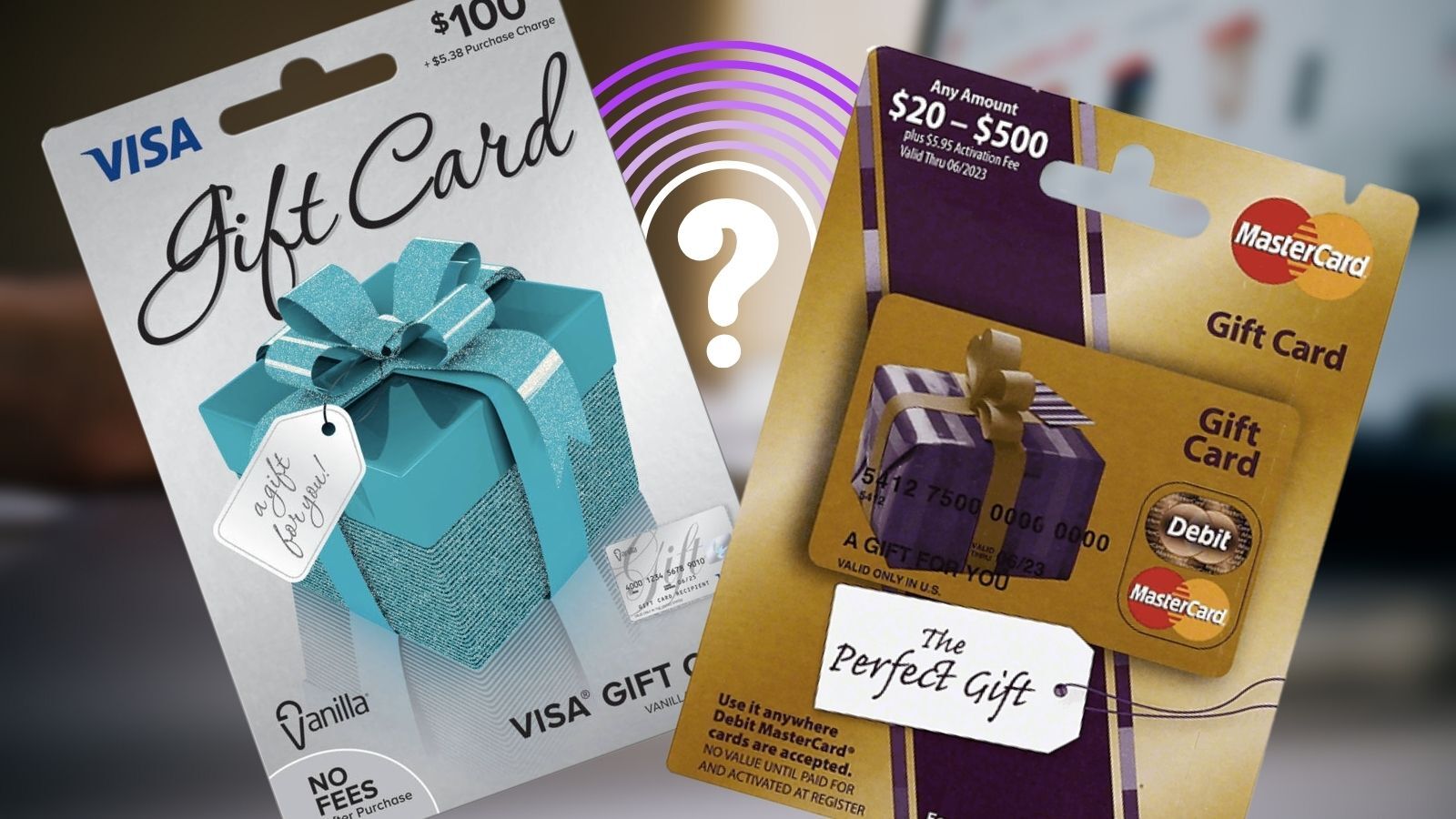
Note that Banks have different levels of tolerance for spending on gift cards. It’s best to start off small and ramp up your spending over time. Amex, in particular, is thought to more sensitive about GC purchases. Be very careful with how much and how often you buy, especially at first, or you risk claw back, pop-up prison and, potentially, shutdown.
Liquidation options have become more difficult in the last few years and are extremely location-dependent. Even if you have options in your area that are healthy, it’s important to have a backup option (or four) and never buy more than you can afford to float in case your preferred liquidation option dries up.
Buy money orders with gift cards
This involves using a credit card to buy a Visa or MasterCard gift card and then using that gift card as a debit card to purchase a money order from a grocery store, department store, post office or other. You can then deposit that money order to a bank or use it directly to pay bills.
- Cost: $.50-$2.20 per $1000 in money orders
- There are several different issuers/brands of Visa/MC gift cards that can be purchased in stores. Some of the most common are Pathward (formerly Metabank), US Bank (USB), Vanilla and Secure Spend.
- Pathward is probably the most common, and also the most tricky to liquidate. Many stores will not process the cards at money order terminals, or not above a certain amount (usually ~$99 or ~$470). These are the cards that Simon Mall sells.
- Techniques that work or don’t work are specific to different regions, stores, or even to individual cashiers. Brands can be location dependent as well. Just because something works in Oklahoma or in rural New York doesn't mean it will work in downtown Seattle.
- Some people have had their bank accounts shut down after depositing large amounts of money orders. Keep in mind that this type of shut down may include the bank closing any credit cards you have with that institution, so consider depositing money orders in a bank or credit union that does not issue credit cards that matter to you.
- Some cashiers will tell you that they can't accept/use gift cards for money orders. It's better to just try as opposed to asking.
- Some cashiers will tell you it's illegal because of "money-laundering laws." It isn't.
- Walmart has instructed employees not to allow manufactured spending transactions as of 12/19/20. However, this is often not enforced. See: Walmart Manufactured Spending Policy Memo: “That activity should be stopped”
- Walmart requires a customer’s ID information to be entered into a Know Your Customer database for money order purchases in excess of $1K. Daily limit is now $8K per rolling 24 hours based on entries in that database. Note that some people have been banned from buying money orders with less than the maximum activity.
- Most Walmart stores now limit money order buyers to 4 debit card swipes (e.g. $2,000 when using $500 debit gift cards)
- Vanilla branded gift cards do not work at Walmart stores for transactions of $50 or greater.
- Many US Post Offices no longer accept gift cards to pay for money orders
Health Assessment: This is extremely location dependent. In some areas, buying money orders with debit gift cards is easy. In other areas it can be very difficult, especially with Walmart and many grocery chains now limiting cards issued by Metabank to swipes of $99 or less, or not taking them at all. It’s often a matter of trial and error in your local area to find out what works and what doesn’t.
Pay bills with a gift card
It’s possible to use credit cards to buy Visa or MasterCard gift cards and then use the gift card as a debit card in-store or online to pay bills (including some credit card bills).
- Cost: Varies.
- Techniques that work or don’t work are specific to different regions, stores, or even to individual cashiers.
- Visa gift cards tend to have fewer problems than MasterCard gift cards.
- Credit card companies are known to shut down accounts when they receive frequent payments from in-store bill pay services, or via multiple debit cards over a period of time. Manufactured spending via this method can be risky.
Health Assessment: This is extremely location/institution dependent.
Reloading prepaid cards with gift cards
Some stores will allow you to use a Visa or MasterCard gift card to reload prepaid cards. These can then be liquidated by paying bills (some offer free bill pay), ATM withdrawals, buying money orders, etc.
- Cost: Fees vary and can add up quickly in some cases: If it costs up to $5.95 for each $500 Visa gift card and then another $5.95 to reload your prepaid card, total fees = 2.38%...and you still haven't gotten the funds off of your prepaid card.
- This option has shrunk dramatically in the last few years and many prepaid card issuers have become very quick to shutdown accounts loaded repeatedly by gift cards.
- Walmart has instructed employees not to allow manufactured spending transactions as of 12/19/20. See: Walmart Manufactured Spending Policy Memo: “That activity should be stopped”
- Techniques that work or don’t work are specific to different regions, stores, or even to individual cashiers.
- Visa gift cards tend to have fewer problems than MasterCard gift cards.
Health Assessment: Healthy for some, but reload techniques have become highly dependent upon location and brand and new customers may encounter tough sledding.
Bluebird/Serve
Bluebird and Serve are prepaid reloadable Amex cards (Serve has Visa as well). In order to increase spend through Bluebird or Serve, the trick is to find a way to indirectly add funds via credit card (like via a Visa/MC gift card). Once funds are loaded, there are easy options for getting your money back: withdraw cash to your linked bank account; use Bluebird or Serve’s bill pay feature to pay your credit card bill; or withdraw cash from ATMs.

Reselling merchandise to increase credit card spend
Buy & sell merchant gift cards
Buying and selling merchant gift cards (aka “gift card churning) is buying and selling 3rd party gift cards for the purpose of saving money, earning money, earning extra points, and/or increasing credit card spend. This can be done directly via online marketplaces like Ebay or to buyer’s clubs that buy the card (or more accurately card number) directly from you and then resell the card to another party.
Doctor of Credit maintains a useful list of methods to buy gift cards with discounts and bonus rewards that is kept semi-updated.
- Risk of non-payment is real, both for direct sales and buyer's clubs.
- Start small, with known buyers that have references (if using buyer's clubs).
- Many stores now block the ability to buy 3rd party gift cards with Visa/MC gift cards.
- Amazon.com allows buying 3rd party gift cards with Amazon gift card credit, but Amazon has been known to shut down the accounts of some customers doing this. If you value your Amazon account, proceed with caution.
- Gift card selling through eBay is alive, but less attractive now that they no longer allow buying 3rd party gift cards with eBay gift cards.
- Not to brag, but our own Stephen Pepper's website, GC Galore, is probably the most-used resource for tracking gift card sales (and is also used by many buyer's clubs).
- The biggest public GC resellers are Raise.com, The Card Bay and Aligned Incentives. While none of these usually offer the best rates out there, they are well-known and can be good places to get your toes wet.
- Organization is very important, make sure that you can keep track of necessary cards, numbers, pay-out, etc.
Health Assessment: Healthy, but risky, similar to merchandise resale. Sometimes, buying groups do go out of business. In those instances, sellers are usually left holding the bag.
Buying physical merchandise and reselling
It’s possible to buy merchandise at a discount with a credit card in order to earn rewards, and then resell for a slight loss, to break even or make a profit. This can be an effective way of generating sizeable amounts of spend for welcome offers or big spend bonuses at minimal cost.
Increasing spend through reselling has always been a grind, but it’s also a potentially very rewarding option. In some cases people have started reselling for the purpose of increasing spend, but soon found that it’s a good way to earn money in general. That said, it takes effort and organization to pull it off. There will always be some risk of non-payment selling either directly or to buyer’s clubs. It only takes a few non-payments to erase a lot of profit.
- Risk of non-payment is real, both for direct sales and buyer's clubs.
- Start small, with known buyers that have references if using buyer's clubs.
- If shipping merchandise to your home, make sure taxes and shipping costs are factored in to profitability.
- If shipping directly to a buyer's club (drop-shipping), note that many large retailers have the addresses for common buyer groups blocked and will auto-cancel orders that are made to those addresses.
- Amazon.com is one of the easiest retailers from which to drop-ship. Shutdowns do happen, though. It pays to start small, ramp up slowly, and pay as much as you can with credit cards instead of Amazon gift cards.
- Many retailers like Target, Best Buy, Ebay and Dell.com will block accounts that they suspect are reselling from ordering through their sites. Dell operates on a hair-trigger.
- Be careful about the rate you sell to buyer's clubs at, many of them are currently doing many below-cost deals, meaning they are paying you less than you are paying for the merchanside. Make sure that the rewards you're earning justify the cost you're paying in time and money to participate in below-cost deals.
- Like with gift card reselling, organization is key. If selling to buyer's clubs, make sure that the tracking numbers are entered in a timely manner and doublecheck to make sure that the price you recieved is the price you were promised.
Health Assessment: Healthy, but requires some effort and currently margins are low at buyer’s clubs. Make sure that the rewards warrant the risk, cost and effort.
Increased spending graveyard
Pay Rent with RadPad
Pay rent via credit card. RadPad is a rent payment service that had previously shuttered their service, but is now available again.
Health Assessment: Dead. No rent payments accepted after 1/15/2021
Pay Rent with Urbanr
Pay rent via credit card for a 1.5% fee. Note that Urbanr only accepts Visa, Mastercard, or Discover (no Amex), but they allow you to split tender over 3 credit cards. A 1.5% fee is an amazingly good deal.
Health Assessment: Dead. Sometime on or before May 10th 2020, their website ceased to exist.
Pay Rent with RoomiPay
Health Assessment: Dead. As of Nov 8 2018 (or so) Roomipay no longer accepts credit card payments for rent.
PayPal My Cash Cards
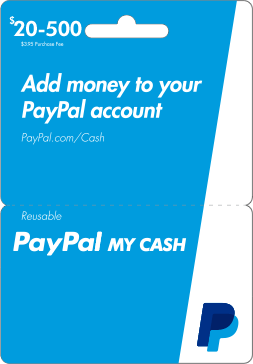
Buy PayPal My Cash cards with a credit card (some drug stores allow credit card payments); load the funds to your PayPal account (up to $4,000 per month); and then retrieve the funds in a number of ways: transfer to your bank account; send money to friends; spend the funds with a PayPal debit card (buy money orders, for example); etc. For information about how to use these without getting shut down, see: PayPal Business Debit Card: A Great Backup Tool for Increased Spending.
Health Assessment: Dead
REDbird — The Target Prepaid REDcard
It used to be possible to load in-store with credit card and then withdraw money or pay bills but cash only loads haved killed REDbird for increasing card spend.
Health Assessment: Dead
Visa Buxx Cards
Visa Buxx are prepaid reloadable Visa debit cards designed for teenagers. The great thing about these cards for increasing spend is that they can be loaded by a parent online, with a credit card for a small fee. Then, they can be unloaded either by using as a debit card to pay bills via debit card, buy cash equivalents, in stores that allow cash back for debit payments (many grocery stores, for example), or via ATM withdrawals.
Health Assessment: Dead





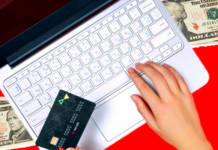
Does Amex or any other credit card company look askance at buying an Amazon gift card while trying to meet minimum spend?
amex – yes
I would suggest using buying groups like UEarnPoints as they really helped me with my CC spending to manufacture lots of travel points, my wife and I have 2 kids, we live in Miami so Disney and Universal is our favorate destination and we barely pay anything on hotels (the tickets are a different thing lol).
[…] Staying current with manufactured spending methods is key in 2024. Several methods are still effective for meeting credit card minimums. Attending events like Frequent Traveler University can help find new MS opportunities7. […]
Funding sports books with VGC and MCGC seems to be dead? At least with the multiple VGC I have tried.
You might consider adding BILT rent payments as an option to increase spend for renters – obviously you can get 1 BILT point for rent payments if you have a BILT card, but you can also use other credit card for a 3% fee (they also give 250 points for this). I find this brings it in line with other options (like Plastiq) and is often worth doing if you’re chasing SUB or potentially if you’re enjoying a 0% intro rate and are getting interest on delayed payment. https://support.biltrewards.com/hc/en-us/articles/5536541311373-What-is-a-Rent-Rewards-Account I’ve tried this with several cards (Amex Business Blue and US bank Triple Cash) and so far it always codes as a purchase.
Does Bluebird still allow loading with gift cards? I had seen elsewhere that died in 2016.
great post thank you for all of the information.
[…] a number of rabbit holes, you’ll quickly come throughout a sprawling web group with how-tos on manufactured spending, bank card churning, and beginning a facet hustle to assist your journey hacking life-style. It may […]
[…] down a few rabbit holes, you’ll soon come across a sprawling internet community with how-tos on manufactured spending, credit card churning, and starting a side hustle to support your travel hacking lifestyle. It can […]
[…] October was a pretty good month when it came to earning points. 40,000 of the points we earned for Marriott came from referring someone to a Marriott credit card, while much of the increase in our Hyatt points was the result of transferring in points from our Chase Ultimate Rewards balances. Most of the rest of our points earnings came about through credit card spend/manufactured spending. […]
Curious, just got the ink business Cash and am looking to buy just an online home depot gift card for a family member and they’ll just pay me back for the amount since they’ll spend that amount in the future . Will this get flagged in any way and why do people choose to get physical gift cards as opposed to online ones.
No, you’ll be fine.
MGM online sports betting froze my account 3 months ago. I submitted my ID and my picture holding up my ID but it’s still frozen. Anyone have any luck having them unfreeze their account? They are saying it’s still under review after 3 months.
No, I don’t have any tips to speed up the review. I’ve had mine limited rather than frozen and I’m not aware of how to emerge from that purgatory, either.
“Complete Guide” that’s an interesting description of this post. It’s much more of an outdated, introductory, high level guide that isn’t better than a 3 minute Google search. It includes things like RadPad and Redbird that died many years ago. The list is essentially worthless. It should probably not even be published. Greg and Nick have (plenty of) specific MS methods they don’t share on this site or on the podcast – or even at in person presentations that people pay to see. For example, Greg MS’s at least 500k for himself and P2 to ‘earn’ Delta Diamond status but has never revealed how he does it. Just know that you’re being lied to on a regular basis.
Just FYI, that’s why Radpad and Redbird are listed in the “MS Graveyard” section under deals that have already died (and if you read the individual sections regarding them, they say that they are dead). As to lies, that seems like a pretty strong statement, but if you see anything in the guide that’s incorrect, please let us know and we’ll certainly modify it. It’s a big topic and things change.
I suspect the commenter’s frustration comes from the idea that MS is, by it’s very nature, secretive. To reveal an opportunity is to kill the golden goose. I understand the idea here is to “inspire” the reader to explore avenues for themselves, but can also understand the frustration on the readers’ part when the authors make statements about being able to have unlimited couch MS (which Greg has done before), that they haven’t needed to buy a GC in a while because of said method (also Greg), etc. Or, listing several GC reselling groups/platforms and then stating the ones that you linked often do not have the best rates…can be a bit off-putting. Why link resources if you’re stating they are already well-known and public? The implication is that most people are already aware of them then. The statement also implies that you will share inferior resources, but not the platform(s) that you use and are a part of, which presumably do often have the best rates. So then the question is – is it worth updating or writing a guide on MS if many of the resources shared are either dead, expensive, inferior versions of the methods actually used by the authors (see GC-reselling example above), or too vague to be useful? Perhaps it is simply better to have a layer of transparency here – “We all have MS avenues. We are not going to share those MS opportunities with you, because then they would be at risk or die. So instead, we are going to give you inferior opportunities, dead ones, more expensive ones, etc., and encourage you to perhaps become a blogger and gain access to the groups we’re currently a part of.”
I’m going to a disagree with you on a few things here. Or rather, how you interpret them.
First off, I wouldn’t describe MS as by nature “secretive.” I would call it, by nature, collaborative. This is something that we try to get across over and over in much of our writing on the subject. It’s really hard to start, or be successful, without engaging other people and getting involved in communities. I’m in probably 20-30 groups of various sizes that are all about sharing information and without that sharing, I wouldn’t have 99% of the tools that I have now. It has nothing to do with being a “blogger.” There are countless folks that MS waaay harder than anyone on our team and most of them don’t blog…but they are in groups. I started years ago by using this very same guide and began exploring the techniques locally, got into facebook groups, then slack and whatsapp groups, etc. You’re reading this and commenting here on FM, another one of those communities that’s openly sharing ideas. Very few, if any people, do the MS or points and miles game without engaging others. it’s the most essential part. Some of the groups may be closed, some may be open. But they’re all groups. Usually the best will be small and somewhat local and you’ll learn and contribute.
I’m not sure what you think of as being “couch MS,” but to me it means MS that you can do online without leaving the house. Let me give you several examples from this post that wouldn’t ever “require” you to buy a visa/mc gift card or leave the house:
I can’t speak to what Greg has or hasn’t done or what he said, but I can tell you that I yearly run appoximately the figures you say Greg does through buyer’s clubs alone. Never have to leave my house. I know people who do much more than that via buyer’s groups and/or sports books (I can’t do sportsbooks because online gambling isn’t legal in my state). I’m not sure what you expect to hear about Greg’s “couch MS,” but I can safely tell you that probably 90% or more of what the FM team does is contained in this post.
There’s only one point where I say that buyers groups may not always have the best rates (or even list buyers groups), and that’s in regards to the three that I mention for GC reselling. I didn’t say they never have the best rates in comparison to other buyer’s groups and no buyer’s group will ever match what you can get selling direct via Ebay or some other avenue. But that doesn’t mean they aren’t good. Several people on the FM Team use each one of them and I personally love Aligned Incentives and often use them. No one buyers club ever has the “best rate.” There’s nothing “inferior” about the ones listed here. They’re here because they’re big, have been operating for awhile, have websites that I can link to and you can look at, are taking new members and have easy-to-use platforms. Many buyer’s groups are on whatsapp, slack, telegram, discord, etc and aren’t open to new members or folks who haven’t done GC reselling before. Getting into those is part of the networking aspect of MS. At some point we’ll do a more in-depth post on buyer’s groups and hopefully I can get some smaller ones to agree to be included. But, the newer and smaller, the more the risk goes up as well.
To be honest, I bristle a bit at your take on what “transparency” would mean from us and, again, the idea that we’re sharing inferior options with readers. If everything is “widely-known and accessible,” why are the next two commenters below you getting angry at us for possibly “ruining” the points and miles game and saying we’re being unethical for how much we’re discussing?
Take a look at our best offers page for credit cards. You’ll the see that over half of the the top options are direct or reader-referral links, instead of the affiliate links that other blogs share and get paid for. If the best offer doesn’t pay us, we share it regardless. Period. Instead of getting paid on a slightly inferior offer, Greg pays several writers to collate reader referral links and manually switch them out daily so that readers get the best offers AND get referral rewards. The blog makes no money from that. It’s always been Greg’s commitment to offer the best options we can find without regard to whether we make money from it, because our trustworthiness as part of this community is paramount. It’s why I work here as opposed to numerous other blogs in this space. It’s why Greg shared Redbird and Bluebird when no one else was. It’s why four authors have spent hours upon hours researching and writing this guide…because we’re trying offer worthwhile content to this community that we feel very much a part of.
The vast majority of the time, if we’re not sharing something, it because we’ve been asked not to. If someone shares something with one of us in confidence, we’re not going to share it with others. That’s part of being trustworthy as well. We’re simply not safegaurding our personal perpetual points machine so that it will always be ours and no one else’s.
However, there’s nothing above that’s dead (unless we say it is in the post). There’s nothing above that can’t be used in most areas to generate good credit card spend. There’s nothing that’s inherently “inferior” or “more expensive.” And I think we’ve created a guide that is a good starting point for those trying to dip their toes in (like I was when I first read it years ago) as well as for those trying to find new opportunities.
Sometimes I think folks take a cursory look at and think “that takes way too much effort, they must be doing other stuff.” In general, MS takes effort, organization, ability to be frustrated and, most of all, community. We at FM do many of things that are written here.
If indeed everything above is all old news and you do it already, great. This guide probably won’t help you. If not, maybe take a closer look and see if there’s something that might be worthwhile to start dipping your toes in. Either way, I hope to see you at an event sometime so I can hear what you’ve been up to.
*Standing ovation*
It’s interesting to see people complaining about posts like this ruining the game becasue it shared too much info, and people complaining a post because it doesn’t share anything useful.
(And in case you ask, I think this post is useful. And honestly if something is easily ruined by a blog post, it’s not going to last long anyways.)
Vanillas definitely work at Walmart for more than $50 for BB loads & MO’s… in my area at least.
I think the greatest manufactured spend of all time was sometime in the 2000s. Don’t remember the year as it’s been a while, but the federal mint in order to encourage circulation of the Susan B Anthony Dollar Coin allowed you to buy the coins from their website with a CC and it had free shipping!!!! You’d just buy thousands and go to the bank and redeposit. That got shut down faster than anything ever.
Actually it lasted a surprisingly long time. People just kept pushing the limits further and further to the point it was untenable.